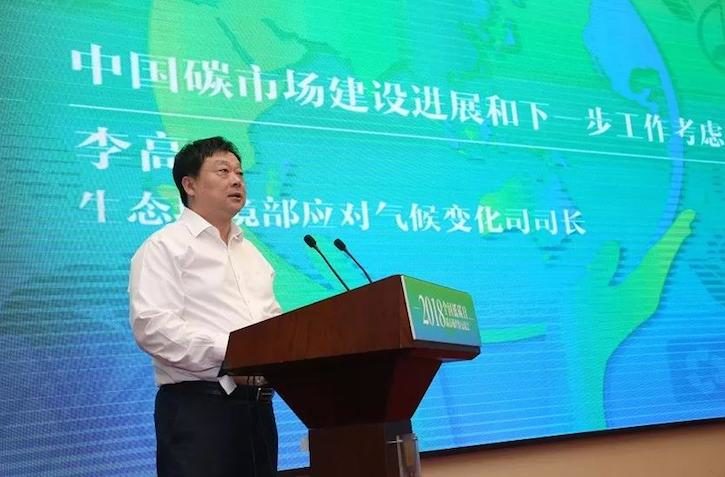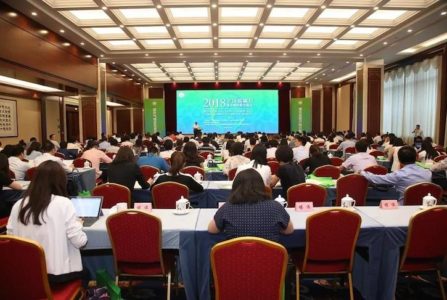
Last week was an eventful week on China’s environmental front. On Wednesday, China celebrated its sixth annual National Low Carbon Day, a campaign created to boost awareness of energy efficiency and low-carbon development policies. As part of the day’s activities, the Ministry of Ecology and Environment (MEE) and the Beijing Development and Reform Commission co-hosted an event that brought together key Chinese officials as well as experts from international NGOs and the private sector to discuss recent developments in China’s carbon markets.
 The PI Green Finance Center participated in the event. Here are a few takeaways:
The PI Green Finance Center participated in the event. Here are a few takeaways:
- The implementation of China’s carbon emissions trading will be managed by the newly established MEE. Formerly, the National Development and Reform Commission (NDRC) managed the major tasks of combatting climate change, including the emissions trading system. The shift from NDRC to MEE is indicative of China’s desire to consolidate its fragmented regulatory authority to better tackle its environmental challenges.
- China’s carbon market development will be guided by “Xi Jinping Thought on Ecological Civilization.” The ecological civilization principle stipulates the need to promote green development, solve prominent environmental problems, intensify the protection of ecosystems, and reform the environmental regulation system. In the context of carbon emissions trading, the ecological civilization principle might provide the basis to enhance policy coordination on climate change response and low-carbon development across various government departments and agencies. It also serves to emphasize the carbon market’s function as a marker-based policy tool for greenhouse gas (GHG) emission control in promoting high-quality growth, advancing ecological progress, and fighting environmental pollution.
- Improving the regulatory and administrative framework of the national carbon market is a top priority for the MEE. Other priorities include accelerating the development of data reporting, registration and trading systems, promoting allowance allocation and measurement, reporting and verification (MRV) for power companies that are the first to be part of the national ETS, and strengthening capacity building for MEE officers at local levels, related government departments, power companies, and verifiers.
- Some initial steps for national market progress are to evaluate market readiness of the power industry and to establish mechanisms to incorporate pilot zones. China’s five largest state-owned power companies are major players in the industry and their inclusion into the national market should be a priority. This means addressing their challenges including lack of a regulatory framework, inadequate allowance allocation, data accuracy and transparency, carbon asset management, and capacity building as learned from the experiences of the Shanghai, Hubei, and Beijing pilot zones.
The bottom line: China’s carbon market is taking shape in some interesting and consequential ways. Be on the lookout for more details after the MEE’s “Three Confirmation Plan” is released in late June.




